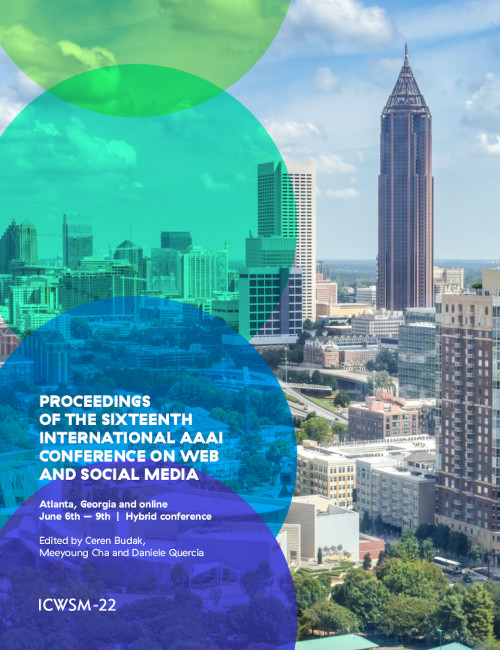The Hipster Paradox in Electronic Dance Music: How Musicians Trade Mainstream Success off against Alternative Status
DOI:
https://doi.org/10.1609/icwsm.v16i1.19299Keywords:
Studies of digital humanities (culture, history, arts) using social media, Social network analysis; communities identification; expertise and authority discovery, Trend identification and tracking; time series forecastingAbstract
The hipster paradox in Electronic Dance Music is the phenomenon that commercial success is collectively considered illegitimate while serious and aspiring professional musicians strive for it. We study this behavioral dilemma using digital traces of performing live and releasing music as they are stored in the Resident Advisor, Juno Download, and Discogs databases from 2001-2018. We construct network snapshots following a formal sociological approach based on bipartite networks, and we use network positions to explain success in regression models of artistic careers. We find evidence for a structural trade-off among autonomy and success. Musicians in EDM embed into exclusive performance-based communities for autonomy but, in earlier career stages, seek the mainstream for commercial success. Our approach highlights how Computational Social Science can benefit from a close connection of data analysis and theory.Downloads
Published
2022-05-31
How to Cite
Jadidi, M., Lietz, H., Samory, M., & Wagner, C. (2022). The Hipster Paradox in Electronic Dance Music: How Musicians Trade Mainstream Success off against Alternative Status. Proceedings of the International AAAI Conference on Web and Social Media, 16(1), 370-380. https://doi.org/10.1609/icwsm.v16i1.19299
Issue
Section
Full Papers

